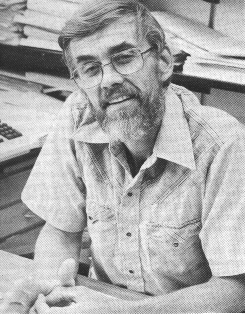
To whom it may concern: Thank you for your letter inquiring about the prospects of doing graduate work with me. I will give you my "stock" response -- you should not necessarily be put off by this, but that will depend upon your own motivation and abilities. Unfortunately (for them), the "world" perceives biology as a luxury that they can do without. (They're dead wrong, but not much can be done about that!) The result is that biologists experience considerable difficulty finding gainful employment. Jobs are in short supply with no relief in sight. In terms of making a decent living, you'd be wiser to become a plumber! (There's a need for plumbing and people will pay for it.) Being a plumber is a relatively safe profession, but ecological field work can be dangerous. A wise person once said "My advice to a young person is not to become a biologist if he or she can possibly help it, but if he or she can't help it, they'll probably make a good one." Caution: If you are ophiodiophobic, do not proceed, go back! NOW!!  As you may know, most of my own work is with desert lizards but my students have worked on other organisms including fish, birds, and insects. I am interested in natural selection, reproductive tactics, allocation, life historical phenomena, phylogenetic systematics, adaptive radiations, biogeography, landscape ecology, metapopulations, resource partitioning, species diversity, and the structure and organization of natural communities. Lately, my attention has become increasingly focused on problems in community ecology. This level of approach lags far behind others in biology and must catch up. It is a very difficult, but also exciting, area, with real promise for major contributions just around the corner. A few years ago, NASA and NSF funded a three-year landscape ecology study of fires as agents of disturbance using satellite imagery, remote sensing and GIS (Geographic Information Systems). This study is based on the Great Victoria desert region in Western Australia, but the imagery work was done here in Austin. We have 20 years of MSS imagery and have extracted nearly a thousand fire scars. Unfortunately, funding for this project has come to an end. I would be interested in a theoretically oriented postdoctoral to carry this research on. Such a person would have to be a proficient programmer and would also have to know Geographic Information Systems (GRASS, ERDAS, IMAGINE) and would also have to know the ecological literature on disturbance and be interested in modelling this fire succession cycle. Unfortunately, I am now too old to take on a new graduate student because it is tantamount to adopting an adult (a 4-5 year commitment is required which I can no longer guarantee). However, I might consider co-sponsoring an extremely bright person, provided that he or she is independent, self-motivated, and good enough to attract his/her own financial support. My philosophy is that the purpose of graduate school is to become an independent scientist, able to stand on your own two feet. I will discuss your research with you, but I will not plan it for you. You must have a pretty clear sense of your own direction for it to work. I prefer not to make any committment until I actually get to know someone and gain some real confidence in their capacities. I'm sorry to be so discouraging but there are hard times ahead for all of us. Good luck in your academic endeavors. Sincerely Yours, Eric R. Pianka Denton A. Cooley Centennial Professor of Zoology Return to Pianka lab page |